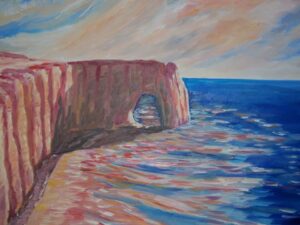The primary use of the simple present tense is to express the notion of regular activity. We also use it to talk about present general situations. Like with the simple past tense, we normally don’t use a helping (auxiliary) verb when forming positive statements. However, a helping verb is necessary when forming negative statements and questions. When forming positive statements, it’s important to remember that the third person singular (he/she/it) ends in “s”. For example:
I walk We walk
You walk You walk
He/She/It walks They walk
In the negative statements we use the base form of the main verb and the helping verb “do” or “does” (third person singular only).
I don’t walk We don’t walk
You don’t walk You don’t walk
He/She/It doesn’t walk They don’t walk
Some words and phrases that indicate regular activity and therefore may (but not necessarily) indicate that the simple present tense is appropriate, are given below:
every day, every night, every week, etc.
usually
often = frequently
rarely
sometimes = occasionally
always
never
Now for a few examples:
Positive Statements:
I study English every night.
Susan always does her homework.
Jim never studies.
He likes to watch TV. (General situation)
Negative Statements:
I don’t study English every night.
Susan doesn’t usually do her homework.
Jim doesn’t read very often.
They don’t like baseball.
Questions:
Do you study English every day?
Where do you like to study?
What do you do on weekends?
Does your wife work with you?
Okay folks. That’s all for now. Next up – the present continuous tense.





